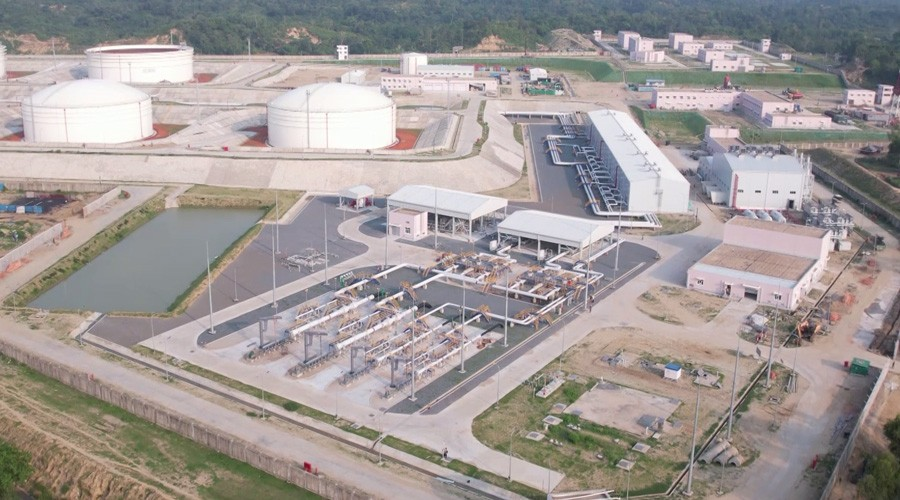Although there is a threat that the Hormuz Strait might be closed due to the ongoing Iran-Israel conflict, Bangladesh is not likely to face any fuel shortage in the next 45 days. The country has already stored a good amount of fuel, including diesel, furnace oil, octane, petrol, and jet fuel.
Current Fuel Reserves in Bangladesh
At this moment, Bangladesh has the following fuel reserves:
-
Diesel and Furnace Oil: Enough for 32 days
-
Octane, Petrol, and Jet Fuel: Enough for 12 to 15 days
More fuel tankers are also expected to arrive at the port this month, which will further strengthen the reserves.
BPC Concerned If War Continues Longer
If the war between Iran and Israel continues for a long time, there’s a chance fuel prices will rise.
The Bangladesh Petroleum Corporation (BPC) is keeping a close watch on the situation.
Though US President Donald Trump has spoken about a possible ceasefire, Iran has denied any such agreement.
Read More: Google Pay Officially Launches in Bangladesh for the First Time— What’s New for Users?
Middle East Tensions Rising
The Middle East situation has worsened after Israel attacked Iranian sites.
In response, Iran has targeted several US bases in the region.
President Trump stated that both Iran and Israel have agreed to a full ceasefire, which could reduce the risk of closing the Hormuz Strait.
However, Iranian Foreign Minister Abbas Araghchi said there is no formal ceasefire deal yet and added that Iran has no interest in further attacks if Israel stops its aggression.
As of now, Israel has not given any official statement.
So, the threat around the Hormuz Strait remains.
Hormuz Strait Still Under Threat
Iran is still continuing its efforts to possibly block the Hormuz Strait, which is one of the most important oil routes in the world.
If that happens, it could create a fuel crisis in South and Southeast Asia, including Bangladesh.
Bangladesh Already Has a Backup Plan
Thanks to proper planning, Bangladesh has enough oil stored, so there is no immediate worry.
The country mostly imports crude oil from Saudi Arabia, about 100,000 metric tons per month.
If the Hormuz Strait is closed, Bangladesh has a backup route via the Fujairah port in the UAE.
Crude Oil from Saudi, Gas from Qatar; Refined Fuel from Southeast Asia
Most of Bangladesh’s crude oil comes from Saudi Arabia, and LNG and LPG gas from Qatar, both through the Hormuz route.
However, refined fuels like octane, petrol, diesel, furnace oil, and jet fuel come from Indonesia, Malaysia, Thailand, and Singapore, which are not affected by the Hormuz route.
Captain SM Jalal U Gazi of Chattogram Marine Commerce Office suggested exploring other sources for crude and gas, in case the crisis deepens.
Saudi Arabia Can Use Red Sea Route, Qatar May Face Trouble
Captain Gazi added that Saudi Arabia can export oil using the Red Sea as a backup route.
But Qatar may face some issues, which is why Bangladesh should start looking for alternative sources now.
BPC’s Current Fuel Stock (in Metric Tons)
-
Diesel: 372,000 (32 days)
-
Octane: 12,000 (12 days)
-
Petrol: 16,600 (13 days)
-
Jet Fuel: 51,000 (31 days)
-
Furnace Oil: 51,000 (29 days)
More Oil Ships Arriving Soon
In the next month, at least 9 oil tankers are expected to arrive at the Chattogram Port, carrying:
-
27,000 MT of Octane
-
25,000 MT of Furnace Oil
-
180,000 MT of Diesel
-
10,000 MT of Jet Fuel
Fuel Demand in Bangladesh
Each year, Bangladesh needs:
-
1.5 million metric tons of crude oil
-
4.5 million metric tons of refined fuel
Experts say Bangladesh must not only avoid any shortage but also use fuel wisely to save resources.
Use Fuel Efficiently, Say Experts
Former General Manager of Meghna Petroleum, Akhtar Kamal, advised people to use fuel carefully and efficiently.
Right now, Bangladesh has the capacity to store fuel for 45 days, but this capacity needs to be increased.
Source: Bangladesh Times


















